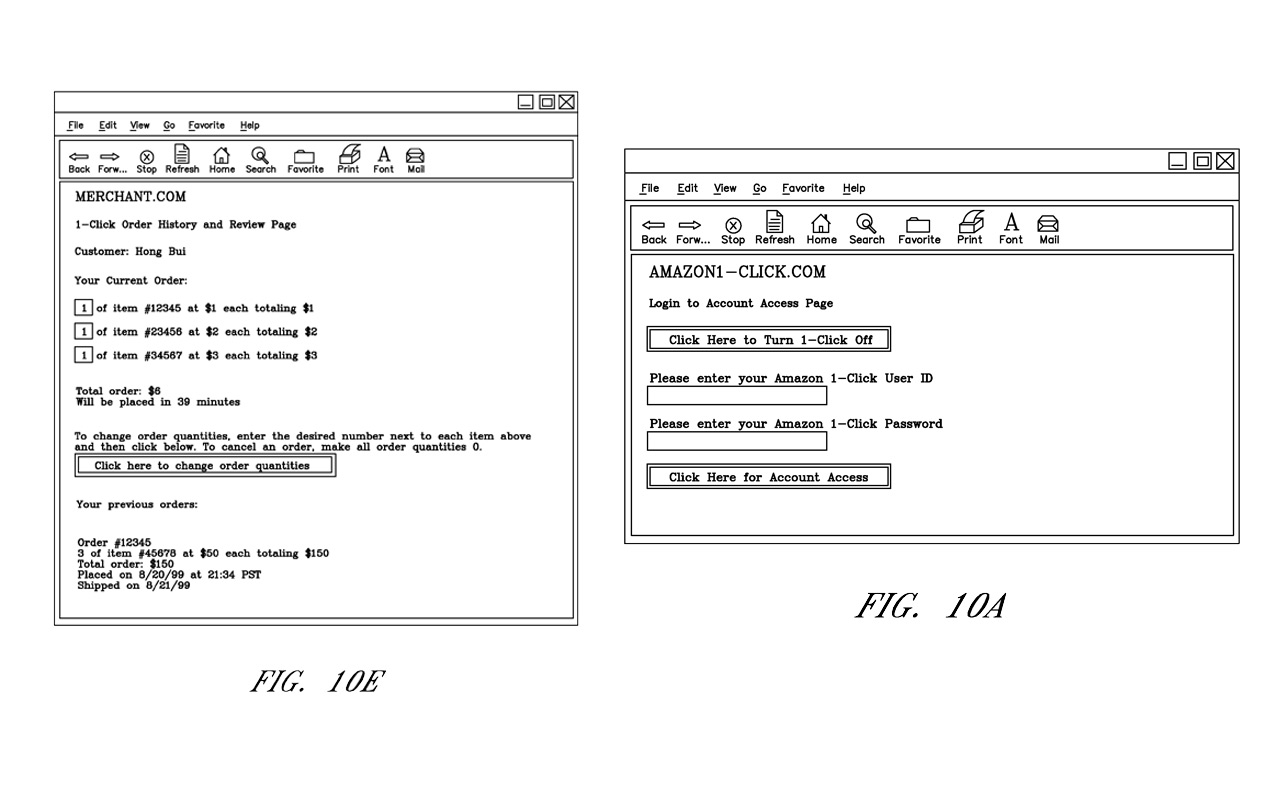Background
12 September 2017 marks it twenty years ago since Amazon filed for their mythical “1-Click patent”. A patent which builds on the idea to store customer’s payment information and address so that the user only need a single click in order to directly purchase a product.
For the past twenty years, Amazon has been extremely protective with the patent, and the only company that has been allowed to license it are Apple. There are no public records of what Apple paid to license it but sources have claimed the patent being valued at 2.4 billion dollars.

Not to be confused
The 1-Click checkout can easily be confused with a one-page checkout but it differs significantly. The one-page checkout checks out the whole account, which means everything in a user’s cart, and the payment is collected on one page before confirming it. With the 1-Click a user can purchase a product without any further confirmation. No clicking through, accepting of charge, one single click from a product page and the order gets placed immediately.
Controversy
Amazon has been criticized over the years with customers feeling that the 1-click buy function has led to accidental purchases without sometimes even realizing that they bought something. As with any new rolled out functions we believe that merchants and developers around the world hold a mutual responsibility to ensure customers overall experience and safety.

Merchants listen up
Amazon will remain the rights to the phrase “1-Click” but game changer lies within the opportunity for any e-commerce based business to be able to offer the functionality to let users purchase with a single click. The function can reduce the friction that some users might feel going through a whole checkout process, down to a single button press.
“Sometimes I will think that I bought something and I press the button, ‘Buy this,’ and I don’t realize it didn’t go through. We are long overdue for a payments user interface for the web.”
– Sir Tim Berners-Lee, Inventor of the World Wide Web
Will this pop
The World Wide Web Consortium (W3C) has starting to work with proposed standards together with companies such as such Google, Facebook, and Apple to help set up a specification that could be rolled out towards web browsers. Google has already implemented some of the standards into Chrome and Chrome Mobile with new sets of features likely around the corner. W3C are ultimately looking for a set of standards that would make it possible for web browsers to directly communicate with payment gateways to send the card or banking information.
